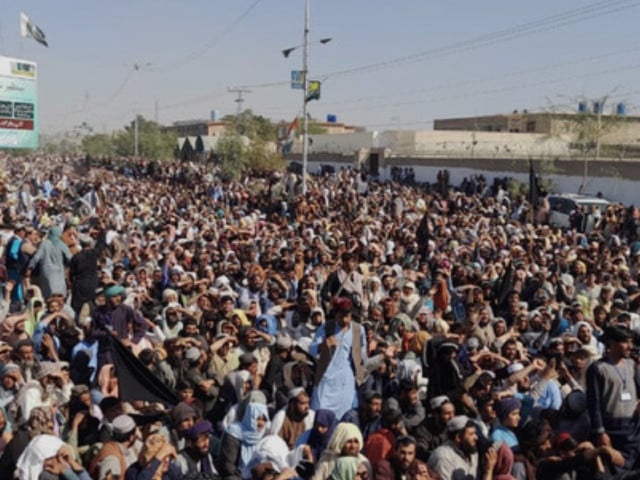QUETTA: A government delegation on Thursday failed to make a breakthrough in its talks with the protestors who have been staging a sit-in in Balochistan’s Chaman district for several months.
Hundreds of local tribesmen and daily wage earners have been protesting against new visa and passport restrictions on people of the border town to cross into Afghanistan and vice versa.
A government delegation comprising Balochistan Assembly Speaker Captain (retd) Abdul Khaliq Achakzai and Home Minister Mir Ziaullah Langau held detailed negotiations with leaders of the Laghari Ittehad—an alliance of daily wage earners and members of other political parties—to find an amicable solution to issues relating to Chaman. However, the talks remained inconclusive.
Later, Balochistan Chief Minister Mir Sarfaraz Bugti said the government was committed to solving issues through dialogue. He urged the government team to engage the protesters despite their refusal to end the protest.
Trade activities have come to a standstill in the town due to the prolonged protest at the border.
“This decision has impacted the tribesmen living on both sides of the border,” said Sadiq Achakzai, one of the protest leaders.
He added that the federal government should realize the difficulties of the masses and restore the old system.
Due to this prolonged sit-in, tension prevails in the city, which shares a border with Afghanistan. “People have to abide by the law,” said Langau, one of the key members of the government team.
The Chaman border crossing, also known as Bab-e-Dosti (the Friendship Gate), is one of the most significant and busiest border points between Pakistan and Afghanistan.
Located in Balochistan’s Chaman district, it serves as a critical transit point for trade, travel, and communication between the two countries.
The crossing is a vital economic lifeline for many local communities, facilitating not only trade but also cultural and social exchanges.
However, it is also a hotspot for security challenges, smuggling, and, occasionally, cross-border tensions.
The Chaman crossing’s smooth operation is essential for the economic stability and development of the region, highlighting the importance of resolving ongoing disputes and ensuring that the border remains open and secure for legitimate activities. –Agencies






